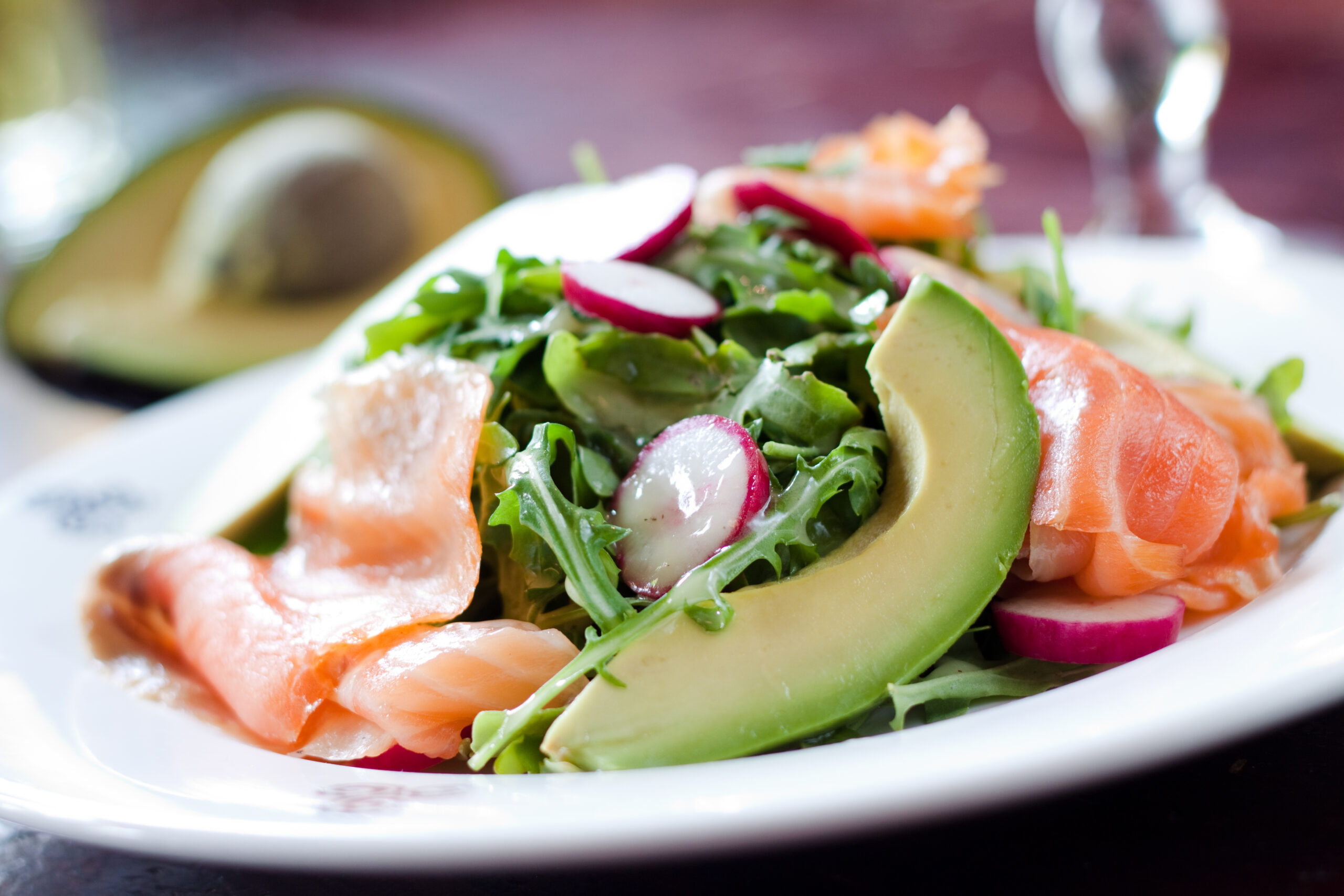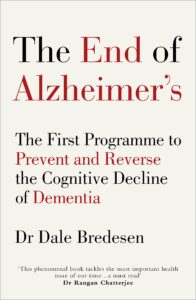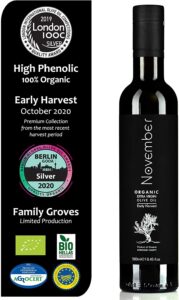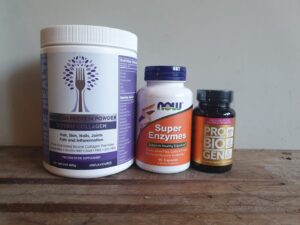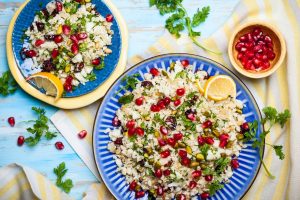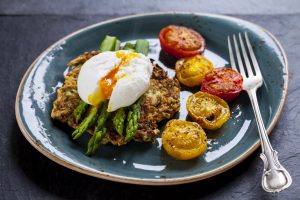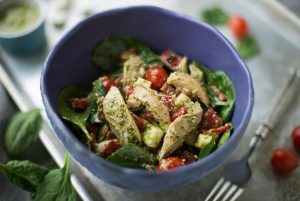Over the last couple of days I have written about my approach to nutrition which includes eating a low-carb diet to balance my blood sugar, and focusing on nutrient-density.
The third approach I want to tell you about is called Ketoflex 12/3, developed by Dr. Dale Bredesen. I am a member of Apollo Health’s PreCODE programme (PreCODE stands for Prevention of Cognitive Decline) and recently had my first PreCODE report done. I’ll write more about my report over the next few days.
What is KetoFLEX 12/3?
KetoFLEX 12/3 is a diet (that becomes a lifestyle) to optimize cognition.
- Keto refers to ketosis, the natural process by which your body breaks down its own fat to use as fuel.
- FLEX refers to metabolic flexibility, the ability to use either glucose or fat as a fuel source. FLEX also refers to a flexitarian diet, in which meat is optional.
- 12/3 refers to the minimum amount of time each day that you should spend fasting; for at least 12 hours with at least 3 hours before bed.
The three components of the KetoFLEX 12/3 lifestyle are: diet, fasting, and exercise on a foundation of quality sleep.
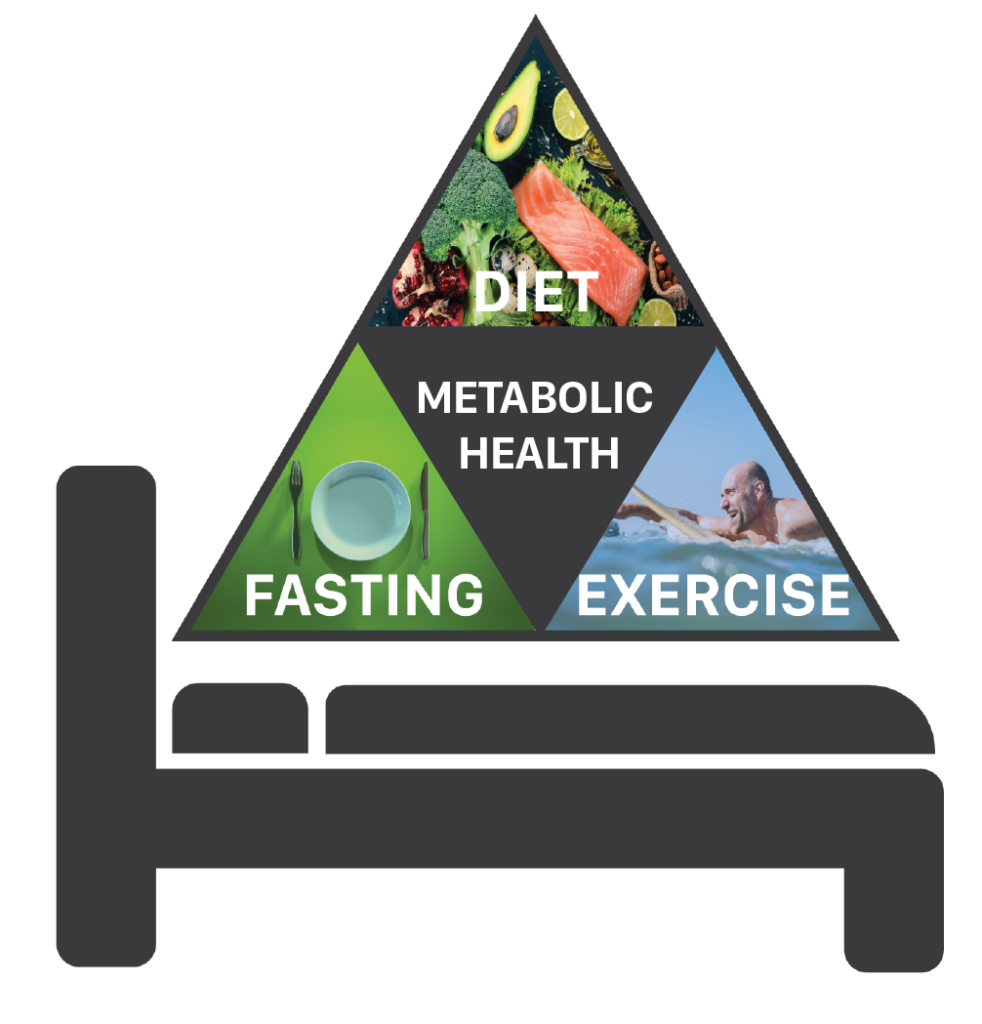
When combined, they heal metabolism and provide clean sustainable fuel for your brain. You can test your blood glucose and ketones to track your progress. You can read more about Ketoflex in Dr. Bredesen’s book The End of Alzheimer’s.
Below are the detailed Ketoflex guidelines. As you will see, this dietary approach is very similar to the Wahls Protocol, and ties in nicely with the low carb and nutrient-optimisation approaches I have been talking about over the last couple of days.
Where this differs is that Marty Kendall’s nutrient-optimisation focuses on protein and a wide range of vegetables with smaller amounts of fat, but Ketoflex focuses on a wide range of vegetables with less protein and more healthy fats (especially from high-polyphenol extra-virgin olive oil).
Ketoflex was developed specifically for those with cognitive decline, with the aim of generating ketones as a fuel for the brain. For metabolically healthy people it doesn’t seem necessary to me to limit protein, since protein is incredibly nutrient-dense and satiating.
I am going to be combining these approaches: with my main focus on eating a wide range of vegetables daily (all approaches agree on this), plus plenty of protein and some healthy fats (mainly from avocado and extra-virgin olive oil).
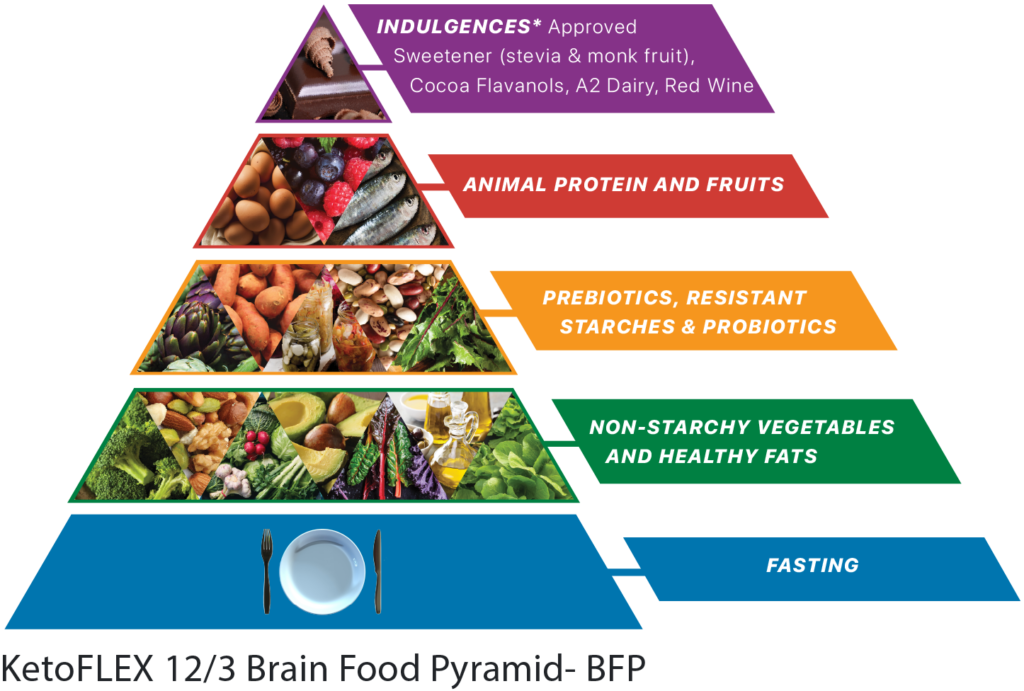
BFP Level One: Clean House
- Fast for at least three hours before bed for a minimum of twelve hours.
BFP Level Two: Freely Indulge
- Eat at LEAST 6-9 cups of deeply pigmented, organic, seasonal, local non-starchy vegetables per day, increasing the amount as tolerated.
- Include leafy greens, especially those that are converted to nitric oxide.
- Include cruciferous vegetables, paying careful attention to preparation to maximize health benefits.
- Include fresh herbs, spices, and teas.
- Increase healthy fat (with increased plant intake) to heal insulin resistance while creating ketones to fuel your brain.
- Prioritize high polyphenol Extra Virgin Olive Oil (EVOO), avocado, nuts, and seeds.
- Remember not to combine high glycemic and inflammatory foods with dietary fat.
- Be aware that as you heal, your need for dietary fat may decrease over time.
BFP Level Three: Upgrade Your Gut
- If you have any chronic GI issues: work to address root causes, incorporate strategies to optimize digestion, and consider a three week elimination diet (including FODMAPs if necessary) to identify hidden food sensitivities.
- Slowly incorporate foods with prebiotic fiber into each meal.
- If resistant starch is appropriate for you, look for opportunities to add small amounts into your diet using healthy fats to reduce the glycemic effect if necessary.
- Once insulin sensitivity, gut health have been remediated, a long term goal is the incorporation of more resistant starches.
- Experiment with adding a variety of probiotic foods into your diet.
BFP Level Four: Choosing Wisely
- Healthy people should limit protein consumption to 0.8-1.0 gram per kilogram of lean body mass per day with some exceptions outlined in The KetoFLEX 12/3 Nutrition Guidelines Chapter 6.
- Be aware that protein goals may be reduced as healing progresses to enhance autophagy.
- All plants contain some protein. There is no need to limit your protein from whole plants.
- Prioritize wild-caught seafood and pastured eggs.
- Eat heirloom fruit seasonally. Depending upon what part of the world you live in, there may be many other options available. Always balance nutritive value against glycemic concerns.
- Enjoy small portions (1/2 cup or less) of wild berries year round.
- Unripened tropical fruit (green plantains, bananas, mangoes, papayas, and kiwi) may be eaten in small amounts as resistant starch and for their natural digestive enzymes.
- Lemons and limes are great sources of vitamin C and can be enjoyed liberally.
BFP Level Five: Indulgences
- If necessary, use limited amounts of approved sweeteners.
- To derive the health benefits of flavanols, enjoy small amounts of high cacao chocolate, low in sugar, cadmium and lead.
- Because of toxicity concerns, limit cacao nibs and avoid cocoa and cacao powder.
- Consider a flavanol supplement.
- Avoid all conventional dairy.
- You may have small amounts of A2 dairy if tolerated and desired.
- Alcohol is a neurotoxin and best avoided by anyone at risk of or suffering with cognitive decline.
- If you decide to occasionally indulge, consider small amounts of organic sugar-free, low alcohol red wine.
#JoyfulJune
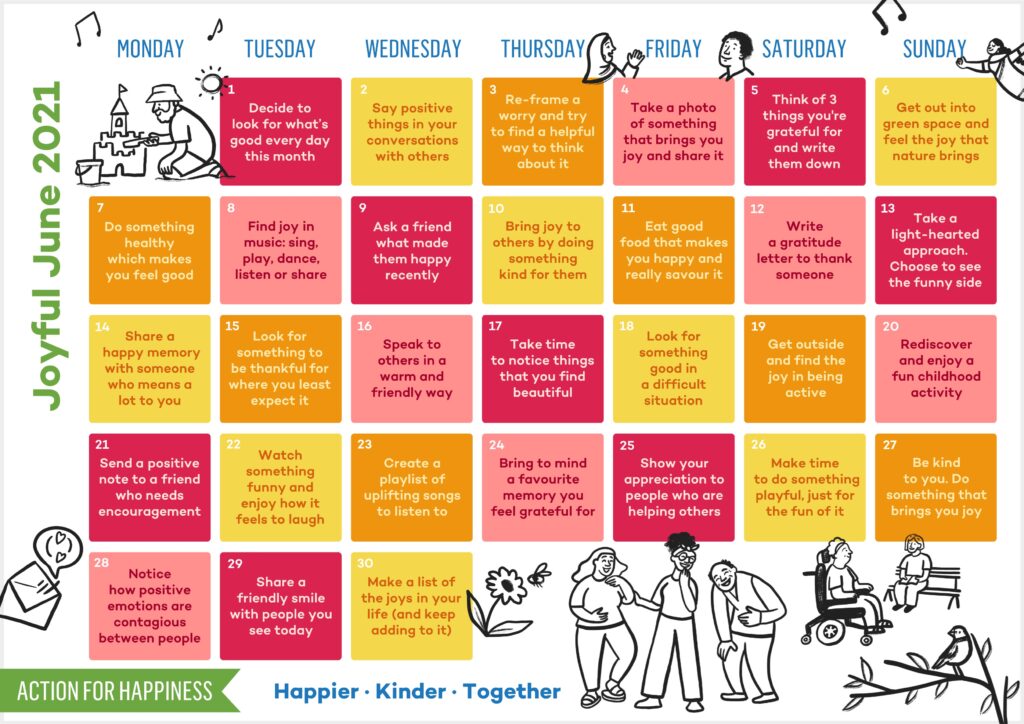
I’m working my way through Action for Happiness’ June calendar: daily actions to appreciate the little things and find more joy. Today’s task is: Think of Three Things you are Grateful for and Write Them Down.
I already use the gratitude technique regularly – I find that writing down what I am grateful for always boosts my mood.
Three things that come to mind today:
- I am grateful for good friends – today I am catching up with my oldest school friends in London and I am excited to see them.
- I am grateful that the sun is shining this morning.
- I am grateful for books that teach me new things and inspire me everyday.
I’m also “Taking in the Good” every day – you can read more about this in my post from Day 1.
Taking in the Good (write down three good things that have happened or that you have noticed)
- Meditating using the Balance app and really taking in the words: “May you be happy, may you be healthy, may you love and be loved.”
- Watching the birds on our bird feeders – I saw a Great Spotted Woodpecker this morning.
- Making and enjoying a healthy breakfast and feeling good that I am nourishing myself and my family well.
What good things will you remember about today, the only Saturday 5th June 2021 we will ever have?
